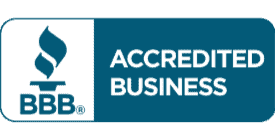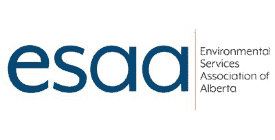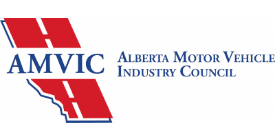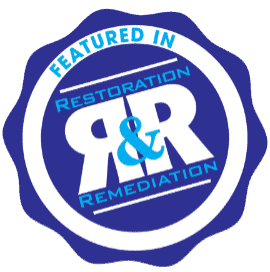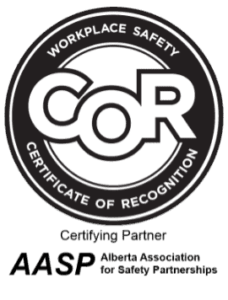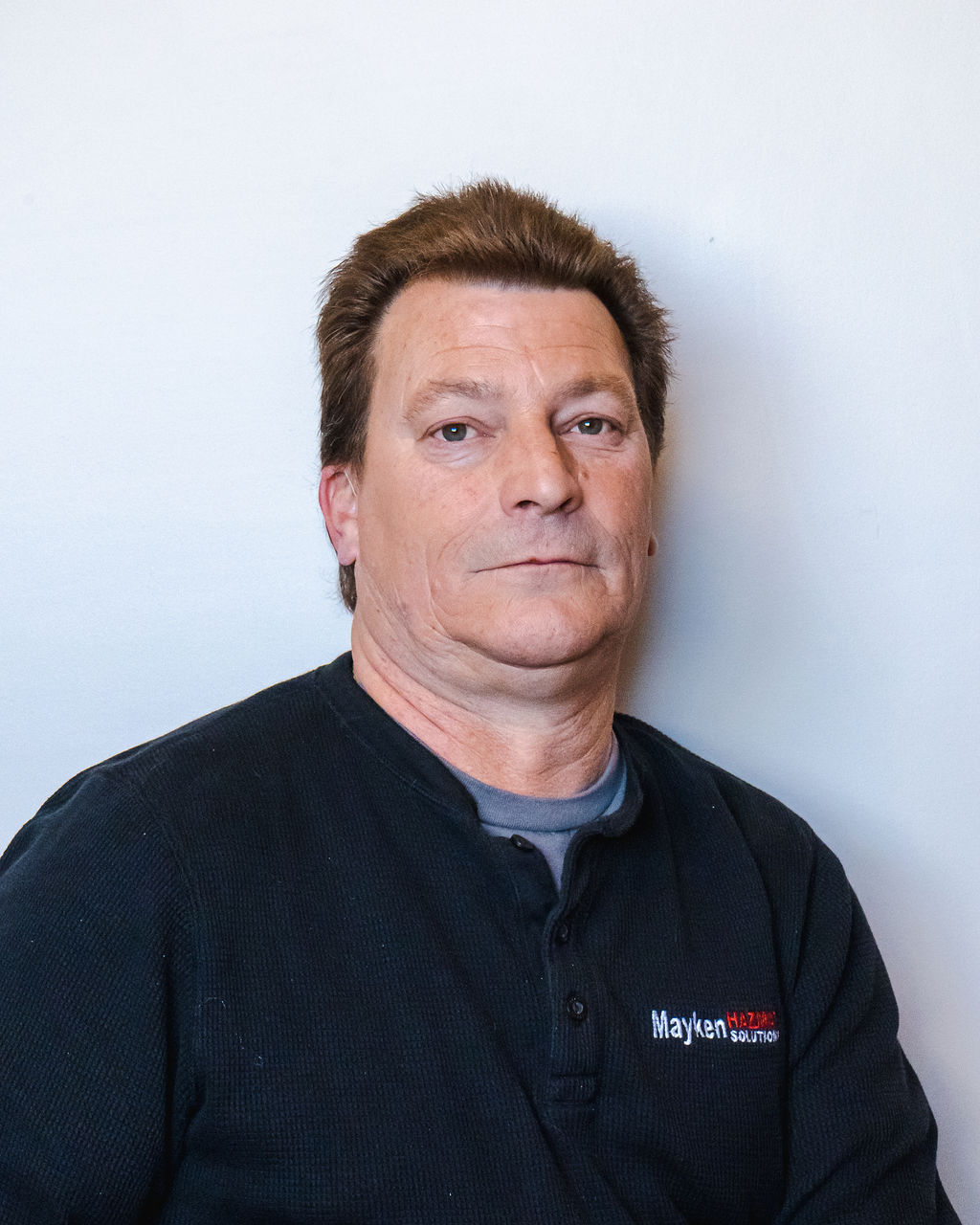Hazardous Detailing for Extraordinary Situations
When dealing with dried spilt milk or the aftermath of a long road trip, you may decide to clean the car yourself or have professional car detailing done. Imagine, however, the overwhelm of facing a mouse infested interior or a broken-down refrigerator truck. These situations are too complicated for soapy water, and auto detailing doesn't go far enough. The best solution is to have your vehicle cleaned and decontaminated by professionals familiar with hazardous materials.
Mayken™ specializes in all levels of vehicle cleaning from stubborn grime and garbage to biohazards and drugs. We have seen most every noxious and nasty condition imaginable. When faced with a new situation we draw upon our extensive years of experience and training.
High Risk Personal and Commercial Vehicle Detailing
Over the past two decades, we have restored personal, recreational, and commercial vehicles with such conditions as:
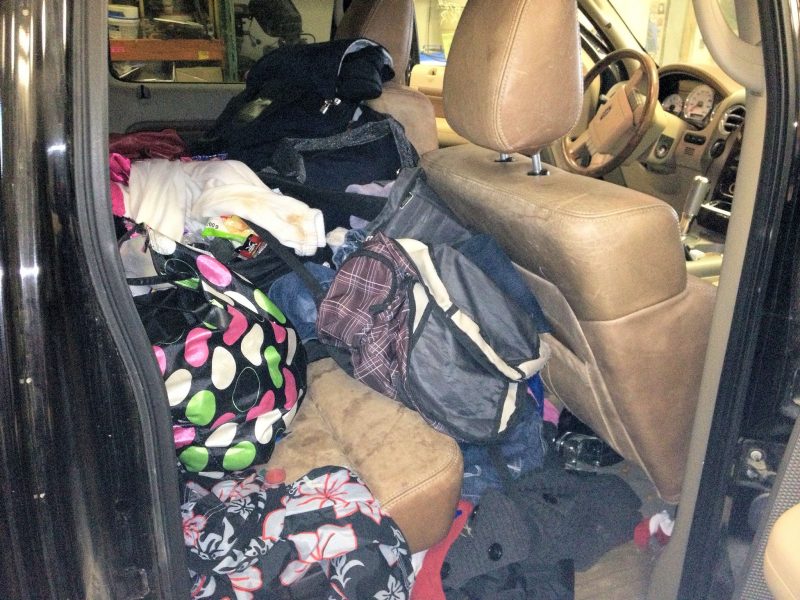
Rodent, bird and insect infestations
Vehicles left in long-term storage or parked for long periods of time can make attractive homes for animals to occupy. They leave behind nesting materials, food, carcasses, feces, etc from their daily living.
Lice, bed bugs and other parasitic insects
Parasites can be transferred easily from the site of infestation into your vehicle by yourself or passengers through any item such as clothes, tools, luggage, etc.
Mold and mildew
Any organic material left long enough in a vehicle, especially unventilated with windows closed, will go moldy over time. Where the interior is not completely dry, such as after a rainstorm or detailing, mold will be pervasive throughout the vehicle.
Fire and smoke
Smoke is one of the hardest odours to remove. Smoke molecules attach to surface molecules in a way that is not easily broken without specialized equipment. Retail products simply mask the smell temporarily without eliminating the underlying issue.
Hoarding or living in vehicle
The accumulation of garbage, uneaten food, and packages, etc becomes an insect, mold, and bacteria issue over time.
Odours
Anywhere from slight but annoying smells to horrible stenches often remain even after the offending materials have been removed from the car. Special equipment is needed for odour removal.
Chemical residue
If your vehicle was stolen and recovered, there is a good chance the police will have dusted the car for fingerprints. Fingerprint powder, as well as other chemicals like tear gas or fire extinguisher powder are difficult to remove.
Illicit drugs, drug residue, drug paraphernalia
Any type of drug use in a vehicle, whether by a family member or criminal, creates a risk exposure for all future passengers.
Infectious diseases (eg. Covid-19, Hepatitis B or C)
Some infectious diseases are transmissible through the air by inhalation, ingestion or even absorption through the skin. Others require direct contact with infected blood or an infected insect. Even if your car has been emptied for a while, some biological agents can survive outside of the infected person's body for a considerable amount of time if there is water or food present before they find a new host.
Bodily fluids
Cleaning up any bodily fluid, whether your own or someone else's, is a gross job. When urine, vomit, feces, or blood is present, you are dealing with biohazard cleanup. Professionals are experienced at doing this and have the right equipment to neutralize and remove any dangerous substances. As well, these fluids can leave lingering odours that are hard to get rid of without the right equipment.
Decomposing bodies
When a decomposing body has been found in a car, bodily fluids must be found and neutralized. Contamination can cover visible and hard-to-reach surfaces such as seats (top, bottom, front and back, material covering and padding), seat belts, consoles and dashboards, air vents, etc. There is the risk as well of encountering infectious disease, drug residue, rodent, or maggot infestations, let alone the stench.
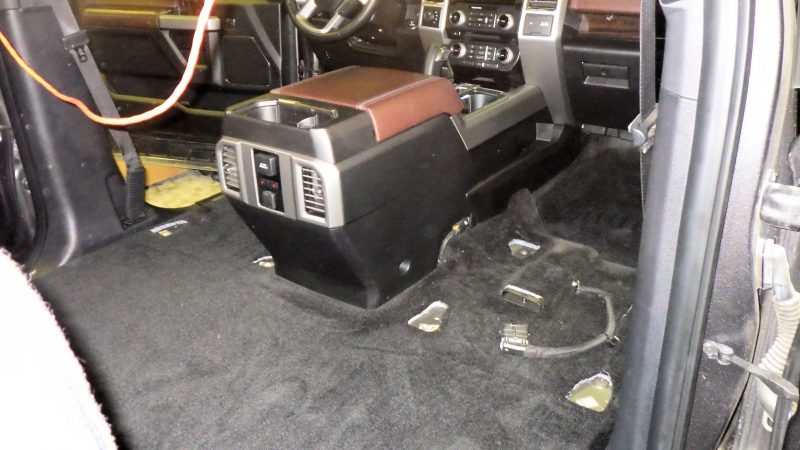
Car Washing vs Detailing vs Hazardous Detailing
The different levels of cleaning a car or vehicle achieves different results. Knowing the difference between available options can help you decide the type of cleanup needed for your situation to drive safely.
Washing a Car
The purpose of a car wash is to remove surface dirt and debris. Left long enough, the contaminants can eventually cause damage to paint, carpets, cloth, leather, and other surfaces. Cleaning is most often associated with the exterior surfaces while a quick vacuum of the interior is sometimes included in a wash. Tools of the trade are soapy water, a wash mitt and possibly Turtle Wax.
Detailing a Vehicle
The intent of detailing is to restore as much of the new car sheen as possible. Detailing packages tend to start with rejuvenating the exterior paint finish, chrome, and rubber. Interior surfaces are often added on as an upsell. With detailing, effort is put into removing tough stains, stubborn dirt, tree sap, grease, road grime, and all remains of dirt before applying a protective coating or paint sealant. The detailer will use a microfibre cloth, clay bar, and cleaning products from Chemical Guys.
Hazardous Detailing for Vehicles
The result of the vehicle decontamination detailing process is a vehicle free of harmful materials and is safe to drive again. Hazmat professionals focus on interiors because risk exposures are the greatest. External surfaces are neutralized and cleaned too. Where a professional detailer may clean crevices between the seats, a hazmat technician will remove the seats if necessary to ensure all contaminants are removed. Hazmat specialists can do vehicle drug testing if illicit drugs are suspected. In addition to cleaning tools of the trade, hazmat specialists use protective equipment and disinfectant spray to kill any biohazards that are present.
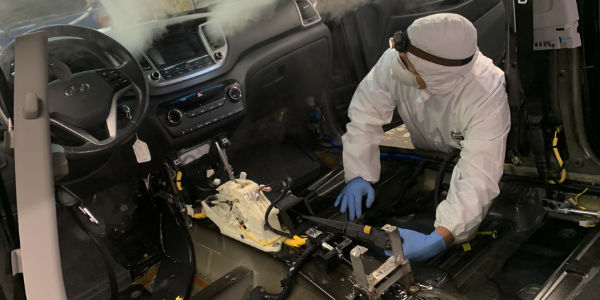
4 Reasons Hazmat Professionals Are Needed for Hazardous Detailing
Professional hazardous detailing and decontamination services are more expensive than DIYing or typical detailers solutions. Beyond your time savings, using professionals is worth the investment for 4 key reasons:
- Expertise
- Training
- Safety
- Trust
Expertise
Professional hazmat cleaners know what they're doing. They don't use any product or chemical they may have on hand hoping it will work. Knowing how to assess the situation and use the right products and cleaners to be effective is important. Your results just won't be clean, they will be thorough and safe.
Training
Professionals understand the hazards involved. Calling in an expert means you are dealing with someone who has the proper training, protective equipment, and experience to handle any biohazardous and toxic substances.
Safety
Professionals follow strict safety protocols and procedures. Properly disposing of hazardous materials is as important as removing them.
Trust
Professionals offer peace-of-mind. When your vehicle is returned, you can drive away knowing you and your passengers will be safe.
Frequently Asked Questions
Hazardous Detailing
Hazardous detailing removes harmful substances and materials from a vehicle to ensure that it’s safe for the driver to use again. The interior of the car and all of its ventilation systems are the focus of hazardous detailing so that all contaminants are removed. Regular detailing aims to make the interior of a car look as new as possible. While car detailing is an effective way to remove coffee stains and crumbs from your car, it is not meant for removing illicit substances or harmful materials.
If you’re in need of hazardous detailing or would like to know more about our service, contact our team at Mayken™ today!
There are a number of extreme situations where hazardous detailing is required to ensure the health and safety of you and your potential passengers. Seek hazardous detailing if you experience the following:
- Your car has been stolen and recovered
- Exposed to human or bodily fluids
- Infested by rodents, insects or birds
- Mold or extreme odour issues
- Infectious disease (COVID-19, hepatitis B or C)
If you have experienced any of the above, get in touch with Mayken™ as soon as possible to schedule an appointment for hazardous detailing.
Yes, we do! If your car has been stolen and then recovered, it is crucial that you have your vehicle tested. Most of the time, when a vehicle is stolen it is used to carry out crimes related to illegal drug use. From this, there can be residue left behind. Vehicle decontamination will ensure your car is safe to drive again, protecting you and your family from harm.
If you have recently been a victim of car theft and recovery, get in touch with our team immediately!
Before the hazardous detailing process begins, a vehicle drug test is conducted to identify the illicit substances that are present. During the process of vehicle decontamination, hazmat professionals use the necessary tools and disinfectant sprays to remove any harmful materials and substances that pose a risk to your health and safety. If necessary, seats will be removed to ensure all contaminants are removed. External surfaces are also neutralized and cleaned.
If you require hazardous detailing, contact our specialists at Mayken™ Hazmat Solutions.
Ensure your vehicle is safe to drive again
Get in touch with Mayken™ today







